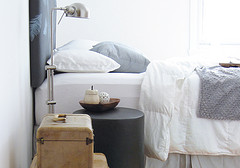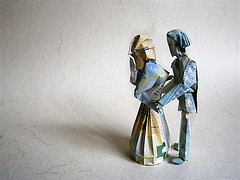You may have made that leap into self-employment or perhaps you’ve been juggling an employed role with a small home business at the side. Either way it’s been maddening watching a portion of that hard-earned income disappearing out of your bank account to pay the taxman. Wouldn’t you agree?
None of us like paying tax – it’s a fact. So, how can we pay less of it in an honest and legal way? My blog below offers 3 simple ways to save you tax.
1. Renting out a room to a lodger
Have you got a spare room in your main house? Is it furnished? Do you want to earn some tax free income?
 The Rent-a-Room Scheme has been around a while but the tax free rental income sum has never been much to write home about. The budget in July 2015 increased this sum from £4,250 to £7,500 – a whopping 76% increase.
The Rent-a-Room Scheme has been around a while but the tax free rental income sum has never been much to write home about. The budget in July 2015 increased this sum from £4,250 to £7,500 – a whopping 76% increase.
If you let a furnished room in your main home (and it could be a rental property) you are entitled to a tax free amount of £7,500. If your property is jointly owned with your spouse, each of you has a tax free amount of £3,250. You could let to a student, an international sports player e.g. Wimbledon or to anyone as long as you are renting part of your home (or rental property) and not all of it (as in airbnb).
Your income could include any amount you receive for meals and services such as laundry and cleaning. You won’t however be allowed to deduct any expenses against your income.
You can find more information on the scheme here (but note that the HMRC document hasn’t been updated with the increase in tax free amount).
Check out the online portals such as spareroom.co.uk or flatshare.com to get a good idea of market rates and to advertise to would be lodgers. Don’t forget to check with your mortgage lender and home insurance before committing yourself, as acting without their knowledge could be a breach of their terms and conditions.
2. The Marriage Allowance
 One of the most common and effective ways for married couples to save tax is to move savings into the name of the spouse who pays the lower rate of tax. Where both of you are basic rate taxpayers you might want to consider this new allowance.
One of the most common and effective ways for married couples to save tax is to move savings into the name of the spouse who pays the lower rate of tax. Where both of you are basic rate taxpayers you might want to consider this new allowance.
The Marriage Allowance was introduced from April 2015 and if you and your partner are eligible, your partner can save up to £212 of tax.
If you are married or in a civil partnership and were born on or after 6 April 1935 check whether you and your partner are eligible with regards to your annual income:
• Your income needs to be £10,600 or less (but it could be £15,600 or less if you have any tax free savings interest)
• Your partner’s income needs to between £10,601 and £42,385
If you satisfy the above criteria, you are allowed to transfer up to £1,060 of your unused personal allowance to your partner. Your personal allowance is the amount of tax-free income you can earn before tax and the current level for 2015/16 is £10,600. Your partner’s new maximum personal allowance will become £11,660 (10,600 +£1,060). That extra bit of allowance will save £212 of tax.
It’s easy to claim! You can register here. HMRC will give your partner their allowance automatically either by changing their tax code or if they self-employed, when they submit their Self Assessment tax return
3. Claiming for All your small expenses
 Most self-employed small business owners don’t claim for all the really small expenses incurred in their business. The reasons generally boil down to not being sufficiently organised to record them and thinking that because they are small, they’re not worth claiming. Sound familiar?
Most self-employed small business owners don’t claim for all the really small expenses incurred in their business. The reasons generally boil down to not being sufficiently organised to record them and thinking that because they are small, they’re not worth claiming. Sound familiar?
The thing is, that in most cases the types of expenditure that you use your loose change for, such as parking, networking events, postage, tolls, an emergency run for some business stationery can all ADD UP to quite a tidy sum. The majority of these ‘small change’ expenses are also likely to be TAX DEDUCTIBLE which means that if you add them all up and deduct them from your income you will pay less tax.
One word of warning – you can’t claim for everything. As a sole trader, spending money on food and drink is only allowed in a few circumstances. I won’t cover this now but here are a few examples: if the food or drink is included as part of an entrance fee to a networking event, it is allowable. If you meet a prospective client for a coffee at your local Costa, this is not allowable – even if you talk business for the entire duration of your meeting.
Get into the habit of regularly jotting down all your small cash outgoings and try and keep receipts where possible. You’ll be amazed at the tax saving accruing to you at the end of the day.
Over to you
Would you like more tips and inspiration? You can sign up here or feel free to take a look at my previous posts.
Have you saved tax in any of these ways? What’s been your experience? Have you any other tax tips you’d like to share? Do leave a comment. I’d love to know.
If you’ve found this post helpful, please share using the icon buttons below.
Photo credit: Holley & Gill / Foter / CC BY-NC-ND
Photo credit: mitanei / Foter / CC BY-NC-SA
Photo credit: ibm4381 / Foter / CC BY
